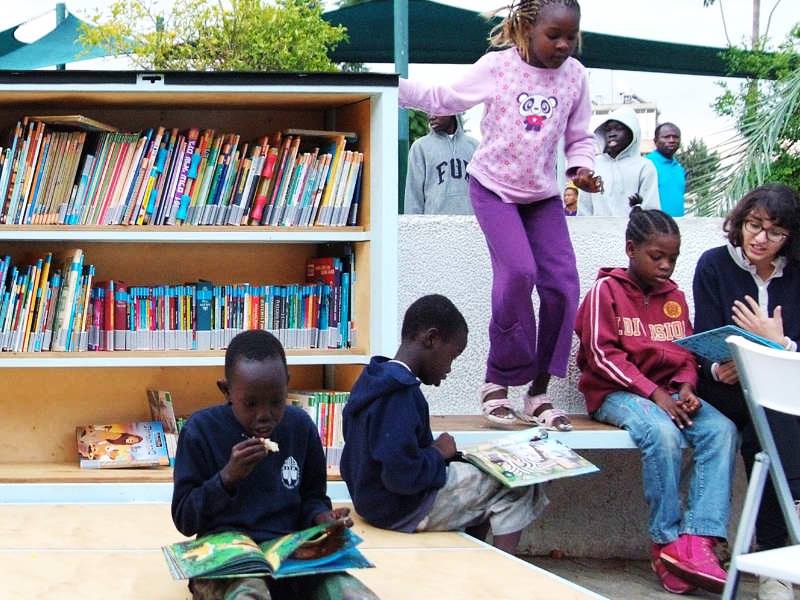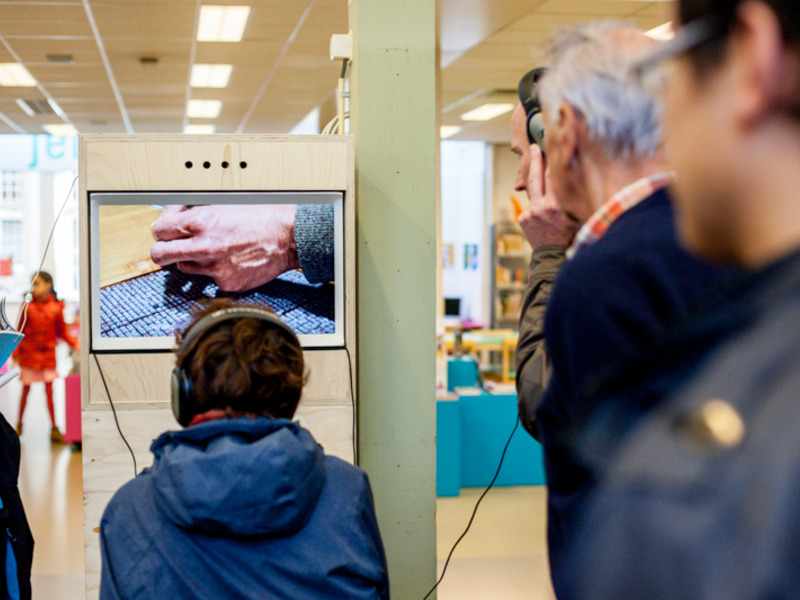
LIBRARIES FOR REFUGEES AND ASYLUM SEEKERS
“Coming to Leipzig”, “Someone is on the Move”, “Overcoming Strangeness”, “Dialogue in German, “With Open Arms” – more and more libraries in many federal states want to ease the settling in of refugees and asylum seekers by offering special services. For such activities, libraries usually cooperate with civic initiatives. Libraries primarily provide their media expertise; but beyond that, encounters between people and contact with locals facilitate getting to know the new surroundings.
Knowledge and encounters
In their media services libraries have been able to draw on the holdings acquired in recent decades for “guest workers” and immigrants. With the aid of project funding and donations, many libraries have brought up to date these stocks and made them available to refugee and asylum seekers. Libraries also seek to reach people directly where they live – for example, the Bremen City Library with media boxes or the Erlangen City Library with language promotion kits.
An important focus of the libraries’ welcome services is on media for children and young people. This target group is also in the forefront of encounter offerings: libraries in Cologne offer sponsorship and mentor programmes for extracurricular work with refugee children. Municipal libraries in other cities organise mentors for families as part of the welcoming initiative, and the Leipzig City Library trains sponsors for refugees and asylum seekers in its “Coming to Leipzig” initiative.
The creative project “Someone is on the Move” of the Magdeburg City Library gave refugee children the opportunity to talk about and present their homelands. The workshop for young people at the International Youth Library in Munich, “Overcoming Strangeness”, offered Germans and refugees and asylum seekers the opportunity for creative exchange.
The library as a place
In view of the living conditions of refugees and asylum seekers in temporary shelters without technical equipment and WLAN, the concept of the library as a place takes on special meaning: public libraries are low-threshold services, and they have sought to lower the bureaucratic hurdles even further. Library cards are issued free of charge, the otherwise required presentation of official papers is waived and premises, Internet access and media service are made available. In Hamburg, for instance, citizens donate money for free customer online passes which enable refugees and asylum seekers to use the library online services.
Libraries offer language courses and computer workstations for learning German. Complemented by dictionaries from the library collections, the essential conditions are in place to ensure that the library can be used for individual and collective learning. Language courses and initiatives such as “Dialogue in German” at the Hamburg Public Libraries have gone down well. Here people can exchange experiences and make contacts in a pleasant atmosphere.
Voluntary helpers, promotion and cooperation
Library services are only made possible through donations, sponsors and public funding. Voluntary helpers are indispensable for all these activities. The libraries therefore cooperate closely with humanitarian organisations such as the Alfred Töpfer Foundation and the German Red Cross and rely on voluntary staff. These voluntary workers include many people with immigrant backgrounds. They receive support and continued professional training from public libraries.
The first step to a welcoming culture
Refugees and asylum seekers often constitute very heterogeneous groups, hailing from various countries with various languages and cultural backgrounds. In the beginning, libraries can therefore offer them only general services. The contribution of libraries to a welcoming culture consists in facilitating access to information, knowledge and encounters. Only once interest is awakened can libraries target the specific needs of the individual.
Source: https://www.goethe.de/en/kul/b
The original was published on www.goethe.de and is used by friendly agreement of Goethe-Institut.




